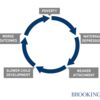0
Report
Community:
May 17, 2023
Researchers at UC Berkeley’s Youth and Allies Against Homelessness, or YAAH, conducted a study to better understand how the COVID-19 pandemic disproportionately affected unhoused youth and their ability to transition out of homelessness and into adulthood. YAAH released a report Wednesday to suggest how to better support this community in the future.
Authored by: UC Berkeley's Youth Allies Against Homelessness for The Daily Californian
Topics: Broadband, COVID-19, Food insecurity, Health, Homelessness, Housing, Low-income, Mental health, Racial inequalities, Youth
 Shared by Sandra Ware
Shared by Sandra Ware
Sandra Ware posted a
on May 25, 2023
UC Berkeley's Youth Allies Against Homelessness for The Daily Californian
Researchers at UC Berkeley’s Youth and Allies Against Homelessness, or YAAH, conducted a study to better understand how the COVID-19 pandemic disproportionately affected unhoused youth and their ability to transition out of homelessness and into adulthood.
0
Communications
Community:
Apr 3, 2023
ASTHO comes to our health agencies and partners saddened by our country's recent mass shooting. We mourn the losses of life from firearm violence as our families, schools, and communities continue to be impacted. ASTHO supports you now more than ever. The epidemic of firearm-related injury and death in the United States has become a critical public health and safety concern that affects everyone.
Authored by: Caitlin Langhorne & Tanya Baker for ASTHO
Topics: Community development, Criminal justice, Health, Mental health, Research
 Shared by Sandra Ware
Shared by Sandra Ware
Sandra Ware posted a
on May 25, 2023
Caitlin Langhorne & Tanya Baker for ASTHO
ASTHO comes to our health agencies and partners saddened by our country's recent mass shooting. We mourn the losses of life from firearm violence as our families, schools, and communities continue to be impacted. ASTHO supports you now more than ever.
0
Policy Brief
Community:
Mar 28, 2023
Family separations and family detention have been used as part of immigration enforcement in the United States. These practices and policies are severely detrimental to child health and wellbeing and can cause lasting harm.
This brief reviews the state of the research on the developmental, psychological, and physical toll of family separation and family detention on children and their caregivers. Grounded in this science, we provide a set of policy recommendations that protect child health and wellbeing.
Authored by: Kelly Edyburn, PhD & Shantel Meek, PhD for the Children's Equity Project
Topics: Child welfare, Early childhood, Health, Immigrants, Legislation & Policy, Mental health, Youth
 Shared by Sandra Ware
Shared by Sandra Ware
Sandra Ware posted a
on Mar 30, 2023
Kelly Edyburn, PhD & Shantel Meek, PhD for the Children's Equity Project
Family separations and family detention have been used as part of immigration enforcement in the United States.
0
Report
Community:
Nov 4, 2022
The 2021 National Academies of Science, Engineering, and Medicine (NASEM) report, Implementing High-Quality Primary Care: Rebuilding the Foundation of Health Care defined a need for coordinated primary care leadership at the federal level. n a new Milbank Memorial Fund report, the Center for Professionalism and Value in Health Care’s Robert L. Phillips, Jr., Milbank Memorial Fund’s Christopher F. Koller, and Covered California’s Alice Hm Chen expand on NASEM recommendations and call for congressional support to establish an Office of Primary Care at the federal level to coordinate existing primary care services and provide oversight to initiatives focused on workforce training, behavioral health integration, clinical comprehensiveness, and payment. According to the authors, creating a robust investment in federal leadership in primary health care that includes a triad of a US Health and Human Services Secretary’s Council on Primary Care, a Primary Care Advisory Committee, and an Office of Primary Care will be essential to addressing the country’s four most important public health challenges: health inequities, pandemic response and resilience, the opioid epidemic, and access to mental health services.
Authored by: Robert L. Phillips Jr, Christopher F. Koller, and Alice Hm Chen for The Milbank Memorial Fund
Topics: COVID-19, Health, Low-income, Mental health, Substance abuse, Workforce development, Youth
 Shared by Sandra Ware
Shared by Sandra Ware
Sandra Ware posted a
on Nov 8, 2022
Robert L. Phillips Jr, Christopher F. Koller, and Alice Hm Chen for The Milbank Memorial Fund
The 2021 National Academies of Science, Engineering, and Medicine (NASEM) report, Implementing High-Quality Primary Care: Rebuilding the Foundation of Health Care defined a need for coordinated primary care leadership at the federal level.
0
Policy Brief
Community:
Nov 3, 2022
The series highlights the promising work of the EHS-CCPs to date, particularly related to pandemic recovery and stabilization, workforce support, and expanding access to holistic support for children and families, especially mental health support. The briefs highlight the many roles that states can play in establishing and expanding their own EHS-CCPs, including by using Preschool Development Grant Birth to Five funding and aligning CCDF quality funding with supports needed to establish and grow the Early Head Start model.
The EHS-CCPs take many forms in states and communities across the country, but all provide resources to child care partners to deliver high-quality services aligned with the holistic Early Head Start model. This includes ensuring access to early learning for infants and toddlers; vision, hearing and developmental screenings; connections to health supports, including mental and dental healthcare; supports for families — including connections to prenatal care and economic, education, housing, and health supports; and coaching and access to credentials and higher levels of education for the workforce. In some states, the EHS-CCPs have prompted important policy changes that align standards across these two programs, reducing the burden for communities and providers.
Check out the full series here and help us spread the word!
Authored by: Mario Cardona, Shantel Meek, Linda Smith, Yvette Fuentes, and Eric Bucher for Arizona State University Center for Child and Family Success
Topics: Child welfare, COVID-19, Health, Mental health, Workforce development
 Shared by Sandra Ware
Shared by Sandra Ware
Sandra Ware posted a
on Nov 3, 2022
Mario Cardona, Shantel Meek, Linda Smith, Yvette Fuentes, and Eric Bucher for Arizona State University Center for Child and Family Success
The series highlights the promising work of the EHS-CCPs to date, particularly related to pandemic recovery and stabilization, workforce support, and expanding access to holistic support for children and families, especially mental health support.
0
Case study
Community:
Oct 25, 2022
According to UN-Habitat, the world needs to build 96,000 affordable homes every day to address the
global housing crisis by 2030. Yet, better utilizing existing housing stock—through options such as shared
housing—can make a significant dent in the need to build more housing. With college students often
challenged to find affordable housing and many older adults living alone in homes with spare bedrooms,
these two groups are increasingly benefitting from living together. Universities are often well-suited to
facilitate students living and learning with older adults in nearby communities. Intentionally fostering
intergenerational engagement through places and programs can reduce loneliness, mitigate ageist
stereotypes, and help both groups to thrive.
Authored by: Stephanie Firestone and Julia Glassman for AARP Equity by Design
Topics: Community development, dual-generation initiative, Funding, Health, Homelessness, Housing, Mental health, Seniors, Youth
 Shared by Sandra Ware
Shared by Sandra Ware
Sandra Ware posted a
on Oct 25, 2022
Stephanie Firestone and Julia Glassman for AARP Equity by Design
According to UN-Habitat, the world needs to build 96,000 affordable homes every day to address the
global housing crisis by 2030. Yet, better utilizing existing housing stock—through options such as shared
housing—can make a significant dent in the need to build more housing.
0
Webinar
Community:
Dec 14, 2021
At its December 2021 meeting, CLPHA's Housing Is Working Group learned from experts in the field about how they have worked to create resident-focused and community-centered work with their PHAs and partners. We also brainstormed how best to support residents and work towards more equitable and representative housing for everyone, and left with the knowledge of how to better highlight and prioritize resident voices and leadership at every level of our work.
Authored by: Housing Is
Topics: Family engagement, Health, Healthy homes, Housing, Housing Is Working Group, Mental health, Racial inequalities, Supportive housing
 Shared by Stephanie Gray
Shared by Stephanie Gray
Stephanie Gray posted a
on Apr 18, 2022
At its December 2021 meeting, CLPHA's Housing Is Working Group learned from experts in the field about how they have worked to create resident-focused and community-centered work with their PHAs and partners.
0
Report
Community:
Apr 11, 2022
Educators play an important role in supporting students' mental well-being. The pandemic has added incredible layers of stress for both adults and young people. Although educators can't control all the stressors and sources of trauma affecting them, they can foster healing and wellness in their classroom or program and work to remove the stigma around mental health concerns.
Authored by: First Book Research & Insights
Topics: Advocacy, Depression, Early childhood, Education, Health, Healthy homes, Literacy, Low-income, Mental health, Racial inequalities, Research, School-readiness, Youth
 Shared by Stephanie Gray
Shared by Stephanie Gray
Stephanie Gray posted a
on Apr 11, 2022
First Book Research & Insights
Educators play an important role in supporting students' mental well-being. The pandemic has added incredible layers of stress for both adults and young people.
0
Research
Community:
Aug 5, 2019
CLPHA developed a general data sharing template that public housing authorities (PHAs) and their health partners can customize to suit their data sharing and collaboration needs. Please feel free to comment to share any uses/modifications your organization made to implement into a partnership.
Authored by:
Topics: Affordable Care Act, CLPHA, Community development, Cost effectiveness, Data sharing, Dental, Depression, Dual-eligibles, Funding, Health, Healthy homes, Legislation & Policy, Low-income, Medicaid / Medicare, Mental health, Metrics, MTW, Nutrition, Obesity, Partnerships, Place-based, Preventative care, Racial inequalities, Research, SAMHSA, Smoke-free, Stability, Substance abuse, Supportive housing, Sustainability, TA
 Shared by Steve Lucas
Shared by Steve Lucas
Steve Lucas posted a
on Aug 5, 2019
Disclaimer: This template is provided for informational purposes only and not for the purpose of providing legal advice. You should contact your attorney to obtain advice with respect to any particular issue or question. Use of this template, including its exhibits and attachments, does not create a relationship or any responsibilities between CLPHA and the user.
CLPHA developed a general data sharing template that public housing authorities (PHAs) and their health partners can customize to suit their data sharing and collaboration needs. Please feel free to comment to share any uses/modifications your organization made to implement into a partnership.
0
News Article
Community:
Apr 21, 2019
The county’s preliminary results look promising: more than 78% of Vital clients were booked into jail less often once enrolled in the program for at least six months. On average, Vital participants went to jail about a third less often per year compared to the three years before their enrollment. A typical client had at least two fewer bookings into a King County Jail compared to the three years before entering the program.
Authored by: Vianna Davila for The Seattle Times
Topics: Criminal justice, Health, Homelessness, Housing, Mental health, Partnerships, Substance abuse
 Shared by Housing Is
Shared by Housing Is
Housing Is posted a
on Apr 25, 2019
Vianna Davila for The Seattle Times
The county’s preliminary results look promising: more than 78% of Vital clients were booked into jail less often once enrolled in the program for at least six months. On average, Vital participants went to jail about a third less often per year compared to the three years before their enrollment.
0
Publication
Community:
Apr 12, 2019
In Richmond, Virginia, an interprofessional group of health care students and faculty members is helping seniors solve problems early.
Authored by: T.R. Goldman for Health Affairs
Topics: Dental, Health, Low-income, Mental health, Partnerships, Seniors
 Shared by Housing Is
Shared by Housing Is
Housing Is posted a
on Apr 12, 2019
T.R. Goldman for Health Affairs
In Richmond, Virginia, an interprofessional group of health care students and faculty members is helping seniors solve problems early.
0
Interactive
Community:
The Legal Bibliography is collection of 100+ papers, toolkits and other materials focused on privacy, consent and policy documentation. Co-developed by the Network for Public Health Law and Data Across Sectors for Health (DASH), the Bibliography is a growing resource for lawyers and community data practitioners, intended to support local collaboratives in their efforts to share data across sectors.
Authored by: Data Across Sectors for Health (DASH) and Network for Public Health Law (NPHL)
Topics: Criminal justice, Data sharing, Education, Health, Homelessness, Housing, Mental health, Partnerships, Safety
 Shared by Housing Is
Shared by Housing Is
Housing Is posted a
on Apr 8, 2019
Data Across Sectors for Health (DASH) and Network for Public Health Law (NPHL)
The Legal Bibliography is collection of 100+ papers, toolkits and other materials focused on privacy, consent and policy documentation.
0
News Article
Community:
Feb 5, 2019
We beef up law enforcement to attack crime, devote more funding to try and improve inadequate schools and tackle health disparities by getting more people to the doctor. But what if Baltimore could solve all of its persistent social problems by getting rid of poverty?
Authored by: Baltimore Sun Editorial Board for The Baltimore Sun
Topics: Asset building, Criminal justice, Funding, Health, Legislation & Policy, Low-income, Mental health
 Shared by Housing Is
Shared by Housing Is
Housing Is posted a
on Mar 11, 2019
Baltimore Sun Editorial Board for The Baltimore Sun
We beef up law enforcement to attack crime, devote more funding to try and improve inadequate schools and tackle health disparities by getting more people to the doctor. But what if Baltimore could solve all of its persistent social problems by getting rid of poverty?
0
Research
Community:
Jul 21, 2018
A new study measured the mental health of Philadelphia residents before and after blighted lots had been converted into green spaces.
Authored by: Melissa Breyer for treehugger
Topics: Community development, Health, Mental health, Place-based, Research
 Shared by Housing Is
Shared by Housing Is
Housing Is posted a
on Mar 11, 2019
Melissa Breyer for treehugger
A new study measured the mental health of Philadelphia residents before and after blighted lots had been converted into green spaces.
0
Research
Community:
Nov 22, 2018
Improved access to health insurance contributed to reducing worry and stress associated with paying rent/mortgage or purchasing meals among low-income people. Expanding health insurance access may have contributed to increasing the disposable income of low income groups.
Authored by: Shiho Kino, Koryu Sato, and Iciro Kawachi for International Journal for Equity in Health
Topics: Affordable Care Act, Health, Housing, Low-income, Medicaid / Medicare, Mental health, Research, Stability
 Shared by Mica O'Brien
Shared by Mica O'Brien
Mica O'Brien posted a
on Mar 7, 2019
Shiho Kino, Koryu Sato, and Iciro Kawachi for International Journal for Equity in Health
Improved access to health insurance contributed to reducing worry and stress associated with paying rent/mortgage or purchasing meals among low-income people. Expanding health insurance access may have contributed to increasing the disposable income of low income groups.
0
Webinar
Community:
Feb 28, 2019
Join us for an examination of how cross-sector data sharing initiatives are being used to tackle tough public health problems. The webinar will provide an in-depth look at a cross-sector collaboration in Illinois between public health, law enforcement, emergency medical services, a fire department and a jail aimed at addressing the needs of high utilizers of behavioral health services.
Authored by: The Network for Public Health Law
Topics: Criminal justice, Data sharing, Health, Mental health, Midwest, Partnerships, Safety, Stability
 Shared by Housing Is
Shared by Housing Is
Housing Is posted a
on Mar 6, 2019
The Network for Public Health Law
Join us for an examination of how cross-sector data sharing initiatives are being used to tackle tough public health problems.
0
Research
Community:
Nov 1, 2018
In this study, researchers conduct a literature review across public health, environmental health, medical, sociology, and urban planning journals to synthesize the research on the mental health effects of rat infestations on residents living in urban neighborhoods.
Authored by: Kaylee Byers, Chelsea G. Himsworth, and Raymond Lam for The Journal of Environmental Health
Topics: Health, Housing, Low-income, Mental health, Research, Safety
 Shared by Housing Is
Shared by Housing Is
Housing Is posted a
on Feb 28, 2019
Kaylee Byers, Chelsea G. Himsworth, and Raymond Lam for The Journal of Environmental Health
In this study, researchers conduct a literature review across public health, environmental health, medical, sociology, and urban planning journals to synthesize the research on the mental health effects of rat infestations on residents living in urban neighborhoods.
0
Podcast
Community:
This episode features Martin Love, CEO and Jessica Osborne-Stafsnes, Program Manager at the North Coast Health Improvement and Information Network (NCHIIN) – a non-profit health information exchange in Humboldt County, CA. NCHIIN focuses on exchanging information across multiple sectors – including social care, medical care, behavioral health, criminal justice, education and more – to support care coordination and improve health. As an awardee of DASH CIC-START, NCHIIN worked with partners to add new organizations, sectors, and data streams to ACT.md, their care coordination and alerts notification system. They provided insights about engaging partners to incorporate the system into their workflows to provide more holistic care for patients, especially those with complex health and social needs.
Authored by: All In: Data for Community Health
Topics: Criminal justice, Data sharing, Education, Health, Mental health, Partnerships, West Coast
 Shared by Mica O'Brien
Shared by Mica O'Brien
Mica O'Brien posted a
on Feb 20, 2019
All In: Data for Community Health
This episode features Martin Love, CEO and Jessica Osborne-Stafsnes, Program Manager at the North Coast Health Improvement and Information Network (NCHIIN) – a non-profit health information exchange in Humboldt County, CA.
0
Publication
Community:
Jan 17, 2019
The North Coast Health Improvement and Information Network (NCHIIN) was funded by DASH CIC-START to add new partners, sectors, mental health client summary data, and facility alerts to ACT.md, the care coordination and alerts notification system in Humboldt County, CA. As part of their CIC-START project, NCHIIN developed this document, which provides a methodology for onboarding new organizations, data streams, and sectors into the ACT.md platform.
Authored by: Data Across Sectors for Health (DASH)
Topics: Criminal justice, Data sharing, Health, Mental health, Partnerships, Substance abuse
 Shared by Mica O'Brien
Shared by Mica O'Brien
Mica O'Brien posted a
on Feb 20, 2019
Data Across Sectors for Health (DASH)
The North Coast Health Improvement and Information Network (NCHIIN) was funded by DASH CIC-START to add new partners, sectors, mental health client summary data, and facility alerts to ACT.md, the care coordination and alerts notification system in Humboldt County, CA.
0
Report
Community:
Jan 24, 2019
The purpose of this paper is to examine barriers to the integration of clinical health care and mental health services, and to identify policy options for consideration in advancing integration of services.
Authored by: Bipartisan Policy Center
Topics: Health, Mental health, Preventative care, Research, Substance abuse
 Shared by Mica O'Brien
Shared by Mica O'Brien
Mica O'Brien posted a
on Feb 12, 2019
The purpose of this paper is to examine barriers to the integration of clinical health care and mental health services, and to identify policy options for consideration in advancing integration of services.
0
Report
Community:
Jan 31, 2019
For a very young child, the relationship with a primary caregiver, most often though not exclusively a mother, lays an important psychological foundation for later flourishing. Successful attachment and bonding in the first two years of life predicts healthy later development on a range of fronts, from mental health to educational skills. When bonding and attachment prove difficult, child development is affected. Recent advances in brain science allow this impact to be shown more clearly and more definitively.
Authored by: Richard V. Reeves for Brookings Institution
Topics: Child welfare, Depression, Dual-generation, Early childhood, Health, Low-income, Mental health, Mobility
 Shared by Mica O'Brien
Shared by Mica O'Brien
Mica O'Brien posted a
on Feb 5, 2019
Richard V. Reeves for Brookings Institution
For a very young child, the relationship with a primary caregiver, most often though not exclusively a mother, lays an important psychological foundation for later flourishing.
0
News Article
Community:
Jan 18, 2019
The State of Arizona’s Medicaid agency (AHCCCS) recognizes the vital importance of safe, decent and affordable housing to health. With a portfolio of over 3,000 units of affordable housing for Medicaid members with a determination of serious mental illness (SMI) and/or substance use disorder, housing is a major component of how the State of Arizona assists those trying to recover and stabilize.
Authored by: Josh Crites for The Journal of Housing & Community Development
Topics: Cost effectiveness, Health, Housing, Low-income, Medicaid / Medicare, Mental health, Partnerships, Substance abuse
 Shared by Housing Is
Shared by Housing Is
Housing Is posted a
on Jan 22, 2019
Josh Crites for The Journal of Housing & Community Development
The State of Arizona’s Medicaid agency (AHCCCS) recognizes the vital importance of safe, decent and affordable housing to health.
0
News Article
Community:
Jan 8, 2019
SNAP is the first line of defense against senior hunger and frees up funds for health care and housing. This is important because one way struggling seniors often meet rising health care and other costs is by cutting back on or skipping meals — coping strategies that can exacerbate existing health problems. SNAP improves the health and well-being of seniors by reducing the negative health impacts of food insecurity, including diabetes, hypertension and depression.
Authored by: Joey Hentzler for The Topeka Capital-Journal
Topics: Depression, Disabilities, Food insecurity, Health, Housing, Low-income, Mental health, Midwest, Nutrition, Seniors
 Shared by Housing Is
Shared by Housing Is
Housing Is posted a
on Jan 16, 2019
Joey Hentzler for The Topeka Capital-Journal
SNAP is the first line of defense against senior hunger and frees up funds for health care and housing.
0
Case study
Community:
Dec 6, 2018
The Denver Housing Authority (DHA) wins a 2017 Award of Excellence in Client and Resident Services for creating the Health Navigators (HN) program, which provides mental health education, resources, and doctor referrals.
Authored by: Ashanti Wright for Journal of Housing & Community Development
Topics: Disabilities, Health, Housing, Low-income, Medicaid / Medicare, Mental health, Partnerships, Place-based, Seniors
 Shared by Mica O'Brien
Shared by Mica O'Brien
Mica O'Brien posted a
on Dec 21, 2018
Ashanti Wright for Journal of Housing & Community Development
The Denver Housing Authority (DHA) wins a 2017 Award of Excellence in Client and Resident Services for creating the Health Navigators (HN) program, which provides mental health education, resources, and doctor referrals.
0
Report
Community:
Oct 1, 2018
Studies have consistently documented high rates of obesity and tobacco use among individuals with serious mental illness. In recent years, Medicaid programs have enrolled individuals with serious mental illness into managed care plans, which are responsible for ensuring that their members receive preventive care. Despite the movement to managed care, not much is known about whether this population receives routine screening and follow-up care for common comorbid health conditions and health behaviors.
Authored by: Jonathan Brown, Junquing Liu, and Sarah Hudson Scholle for Mathematica
Topics: Disabilities, Health, Low-income, Medicaid / Medicare, Mental health, Preventative care, Research
 Shared by Mica O'Brien
Shared by Mica O'Brien
Mica O'Brien posted a
on Nov 16, 2018
Jonathan Brown, Junquing Liu, and Sarah Hudson Scholle for Mathematica
Studies have consistently documented high rates of obesity and tobacco use among individuals with serious mental illness.


 Shared by Sandra Ware
on May 25, 2023
Shared by Sandra Ware
on May 25, 2023


 Shared by Sandra Ware
on May 25, 2023
Shared by Sandra Ware
on May 25, 2023


 Shared by Sandra Ware
on Mar 30, 2023
Shared by Sandra Ware
on Mar 30, 2023

 Shared by Sandra Ware
on Nov 8, 2022
Shared by Sandra Ware
on Nov 8, 2022
 Shared by Sandra Ware
on Nov 3, 2022
Shared by Sandra Ware
on Nov 3, 2022
 Shared by Sandra Ware
on Oct 25, 2022
Shared by Sandra Ware
on Oct 25, 2022
 Shared by Stephanie Gray
on Apr 18, 2022
Shared by Stephanie Gray
on Apr 18, 2022
 Shared by Stephanie Gray
on Apr 11, 2022
Shared by Stephanie Gray
on Apr 11, 2022
 Shared by Steve Lucas
on Aug 5, 2019
Shared by Steve Lucas
on Aug 5, 2019

 Shared by Housing Is
on Apr 25, 2019
Shared by Housing Is
on Apr 25, 2019

 Shared by Housing Is
on Apr 12, 2019
Shared by Housing Is
on Apr 12, 2019
 Shared by Housing Is
on Apr 8, 2019
Shared by Housing Is
on Apr 8, 2019

 Shared by Housing Is
on Mar 11, 2019
Shared by Housing Is
on Mar 11, 2019


 Shared by Housing Is
on Mar 11, 2019
Shared by Housing Is
on Mar 11, 2019


 Shared by Housing Is
on Mar 6, 2019
Shared by Housing Is
on Mar 6, 2019

 Shared by Housing Is
on Feb 28, 2019
Shared by Housing Is
on Feb 28, 2019


 Shared by Housing Is
on Jan 22, 2019
Shared by Housing Is
on Jan 22, 2019
 Shared by Housing Is
on Jan 16, 2019
Shared by Housing Is
on Jan 16, 2019

